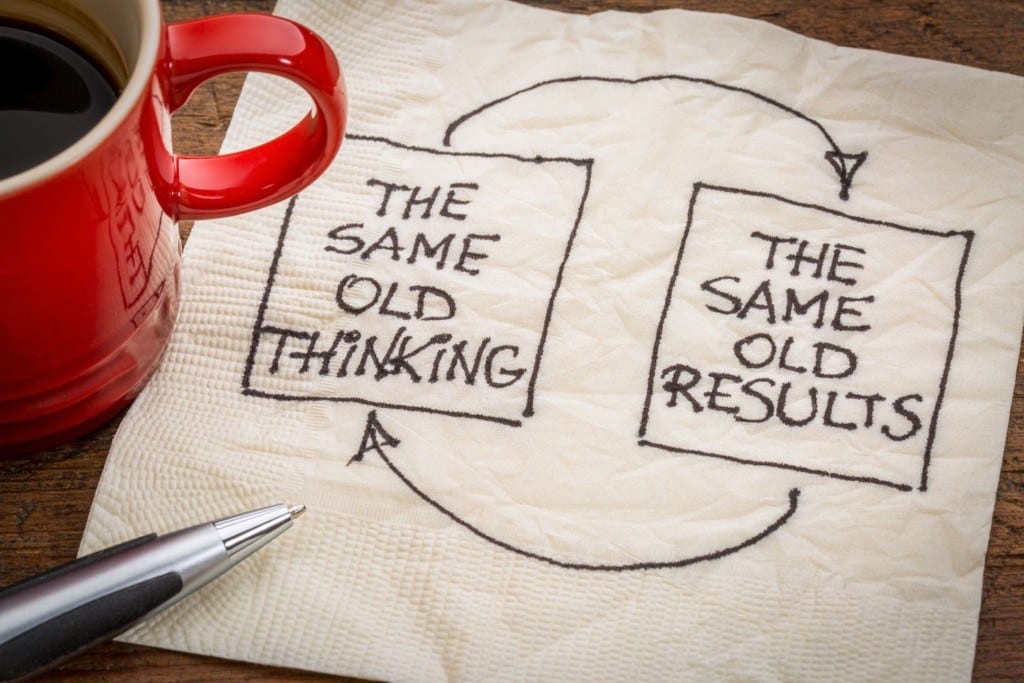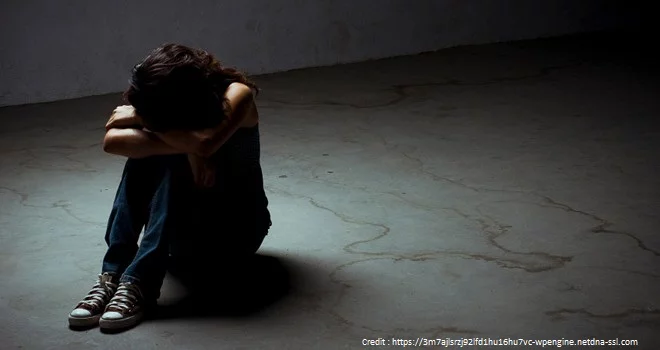Addiction and mental health issues take a heavy toll on personal relationships, shattering one’s sense of community and driving people into isolation. An essential part of recovery is learning how to form positive, healthy connections with others, and a key way to do this is through group therapy.
Our connections with other people are essential lifelines in times of crisis. When we are struggling individually, the moral or material support that we get from others can make a massive difference in our ability to move on and heal. For those battling an addiction or living with a mental health disorder, part of the challenge of overcoming these issues is learning to break out of the isolation that is often a part of them. Group therapy is a targeted and effective way to build connections and foment positive interactions.
Those who haven’t experienced group therapy might think things like: I’m not ready to share my thoughts and feelings with a group. I don’t know how people will react when they hear my story. People are so messy; I can’t deal with it. I don’t trust these people. I don’t feel confident to speak up.
These are common and valid feelings. However, they are also related to the same fears and insecurities that feed isolation and allow mental health and substance use disorders to thrive. Group therapy allows connections to be forged in a safe, constructive environment focused on learning how to communicate and build relationships with other people, critically important skills for a successful, sustainable recovery and positive growth.
First Steps: From Crisis to Counselling
Reaching out for help is what occurs as a result of crisis. For people with a mental health or substance use disorder, the crisis can be driven by a variety of factors. They may have recently attempted suicide or overdosed. They might have run into serious legal or financial trouble. They may have lost something that was important to them, or had a realisation about the reality of what they were living with. Whatever the reason, it is this high level of distress that initially pushes people towards seeking help.
Counselling works by engaging with someone in crisis to help them reconnect and stabilise to the point where they can begin to break their isolation more fully and reform supportive, nurturing networks. In order for these networks to be built, a transition must be made from one-on-one support to group therapy. Moving beyond individual therapy ensures that the person does not only form one trusted, supportive relationship in a controlled environment, but through mindful practice in a group setting gains the skills needed to expand their circles of support, communicate effectively, and function more fully and positively in their lives.
Moving on to Group Therapy
Following detox and initial counselling to move past the intense crisis phase, a more long-term, cooperative effort is needed to focus on the issues underpinning or resulting from the addiction or mental health disorder. These can include social problems like:
- Feeling unable to form close or meaningful relationships
- Feeling reliant on substances to be social with others
- Feeling lonely
- Lacking self-esteem
- Lacking trust in other people
- Not getting what you want or need out of your relationships
- Manipulating others to meet your needs
- Feeling unable to directly communicate your thoughts, needs, or feelings
- Feeling anxious in social settings
- Feeling like you have to always please others
- Being controlling or feeling like you are always controlled
Therapy in a group setting helps people address these problems in the presence of a skilled therapist with other people, essentially replicating real life experiences and interactions. This gives people the opportunity to analyse and better understand their role and emotions in social settings, and work on changing patterns of behaviour for the better.
Types of Group Therapy
There are many types of group therapy generally offered at treatment centres, giving people different ways to pay attention to and process their feelings and experiences. Some of these treatment types include:
Psychodrama
Psychodrama is an experiential therapy which can be done in a group setting. It involves therapist-guided dramatic action to explore a person’s problems or issues, facilitating insight, personal growth, and integration on cognitive, behavioural, and affective levels. Psychodramas allow people to act out life events, including problems and solutions, in order to explore them beyond simple discussion.
Art Therapy
In an art therapy group, the experience of creating art is used as a starting point to explore and understand emotions, and provide an outlet for expression. The therapist helps to facilitate and elicit reflection, both verbally and non-verbally, as participants share their process of discovery with others.
Psychoeducation
Psychoeducation groups involve the sharing of educational information about substance abuse or mental health disorders in a group setting. This allows participants to understand more about their disorder, and to learn positive coping mechanisms. Participants undergoing group psychoeducation are encouraged to share their concerns and challenges with recovery with their supportive and empathetic peers. This is helpful in reaffirming the participants’ growth and feelings, and often inspires a sense of empowerment.
Interpersonal Therapy
Interpersonal therapy is generally considered the most effective form of group therapy. Interpersonal therapy, also known as a process group, is where people can come together to begin to understand their interactions with others, and practice new ways to interact in order to more fully connect with other people and to feel better about themselves. Interpersonal therapy is generally conducted in small groups (around 6-8 people) with 1-2 therapists also participating.
How Does interpersonal Therapy Work?
The first focus of the group is establishing trust, which is done through ensuring shared commitment to the group (including regular attendance), understanding and maintaining total confidentiality, and genuine engagement with the process. Once this is set, the group moves on towards examining the interpersonal interactions occurring as the sessions continue.
Interpersonal therapy is unstructured, which means that there is no guiding question or topic set out at the beginning of each session. Participants are asked instead to focus on noting their feelings, thoughts, and reactions as the session takes place, and to report these to the group. This begins a process of highlighting what is happening in the mind when there is engagement with another person, and unpacking it. This often exposes patterns in relationships that subconsciously guide behaviour, and provides a space to reflect on it and address it.
For the interpersonal therapy approach to be most effective, the process must be facilitated by a skilled, professional therapist. The therapist’s main objective during these sessions is to help cultivate the positive growth of the individuals within the group, as well as the group itself. The therapist will contribute when necessary to help promote reflection, and call attention or observation to various issues that come up during the group. They are also responsible for intervening if there are unhealthy group dynamics, and ensuring that there is balanced participation within the group.
Interpersonal group therapy allows participants to expand their trust and comfort beyond a one-on-one setting, safely piloting new patterns of behaviour, challenging misconceptions about themselves or others, and learning how to respond more effectively with multiple people. This variety mirrors the reality of the world beyond treatment, and better prepares people for continuing these new positive patterns as they re-enter their daily lives.
Tips on How to Prepare for Group Therapy
To get the most out of interpersonal therapy, there are a few things that you can do to cultivate the right mindset and engage most effectively. These include:
- Being curious about your relationships with group members, rather than judgmental or dismissive
- Asking for feedback, as well as giving thoughtful feedback
- Expressing concerns honestly and constructively
- Being attentive to what you’re experiencing from moment to moment
- Avoiding questions of others, which pulls you away from your internal experience
- Making statements based on your personal experience and perceptions
- Noticing what you avoid or dislike talking about in the group
- Remembering that in an interpersonal group it is both important and encouraged to be real and spontaneous
- Being aware of the relational patterns and dynamics you form in the group
- Noticing how you express yourself non-verbally
- Not being afraid to speak about ideas or feelings that are not yet totally clear or sensical
Finding Community at The Dawn

The Dawn Wellness Centre and Rehab in Thailand is a specially designed rehabilitation and wellness facility that has been created to foster an environment of personal growth and healing for people who want to change their lives and overcome addiction or mental health issues.
Licenced by the Thai Ministry of Health, The Dawn offers tailored treatment programmes that address each individual’s issues by using a comprehensive, holistic treatment method and modern techniques with proven results.
Clinical Excellence
The Dawn limits admissions to 35 clients so that its highly-experienced team of addiction and mental health professionals are able to pay personal attention to each individual , ensuring each client receives the ideal balance between rehabilitation, wellness, relaxation and therapeutic engagement.
Call The Dawn today to learn more about how we can help you break isolation, build community, and heal.
Related Posts
 How Are You? Understanding the Mental Health Continuum
Mental health is so much more than either feeling good or being in crisis. Recognising where you are on a mental health continuum can help you know what actions to...
How Are You? Understanding the Mental Health Continuum
Mental health is so much more than either feeling good or being in crisis. Recognising where you are on a mental health continuum can help you know what actions to...
 Mental Health Therapy Is The New “Black” But Will It Suit Me?
Wondering why seeing a shrink has suddenly become trendy? It’s because no matter what your specific mental health struggles are, there are a range of treatment options to provide relief....
Mental Health Therapy Is The New “Black” But Will It Suit Me?
Wondering why seeing a shrink has suddenly become trendy? It’s because no matter what your specific mental health struggles are, there are a range of treatment options to provide relief....
 Why Cognitive Behavioural Therapy is an Effective Tool for Addiction Treatment
If you or a loved one are struggling with alcohol or drug addiction and facing a daily battle to stop, it’s time to consider cognitive behavioural therapy for addiction treatment....
Why Cognitive Behavioural Therapy is an Effective Tool for Addiction Treatment
If you or a loved one are struggling with alcohol or drug addiction and facing a daily battle to stop, it’s time to consider cognitive behavioural therapy for addiction treatment....
 Trauma Therapy – How to Overcome a Painful Past and Create a Better Future
Many people who seek trauma therapy suffer consequences of one or more traumatic events in their life. Even though many find ways to process trauma effectively and eventually resolve their...
Trauma Therapy – How to Overcome a Painful Past and Create a Better Future
Many people who seek trauma therapy suffer consequences of one or more traumatic events in their life. Even though many find ways to process trauma effectively and eventually resolve their...





